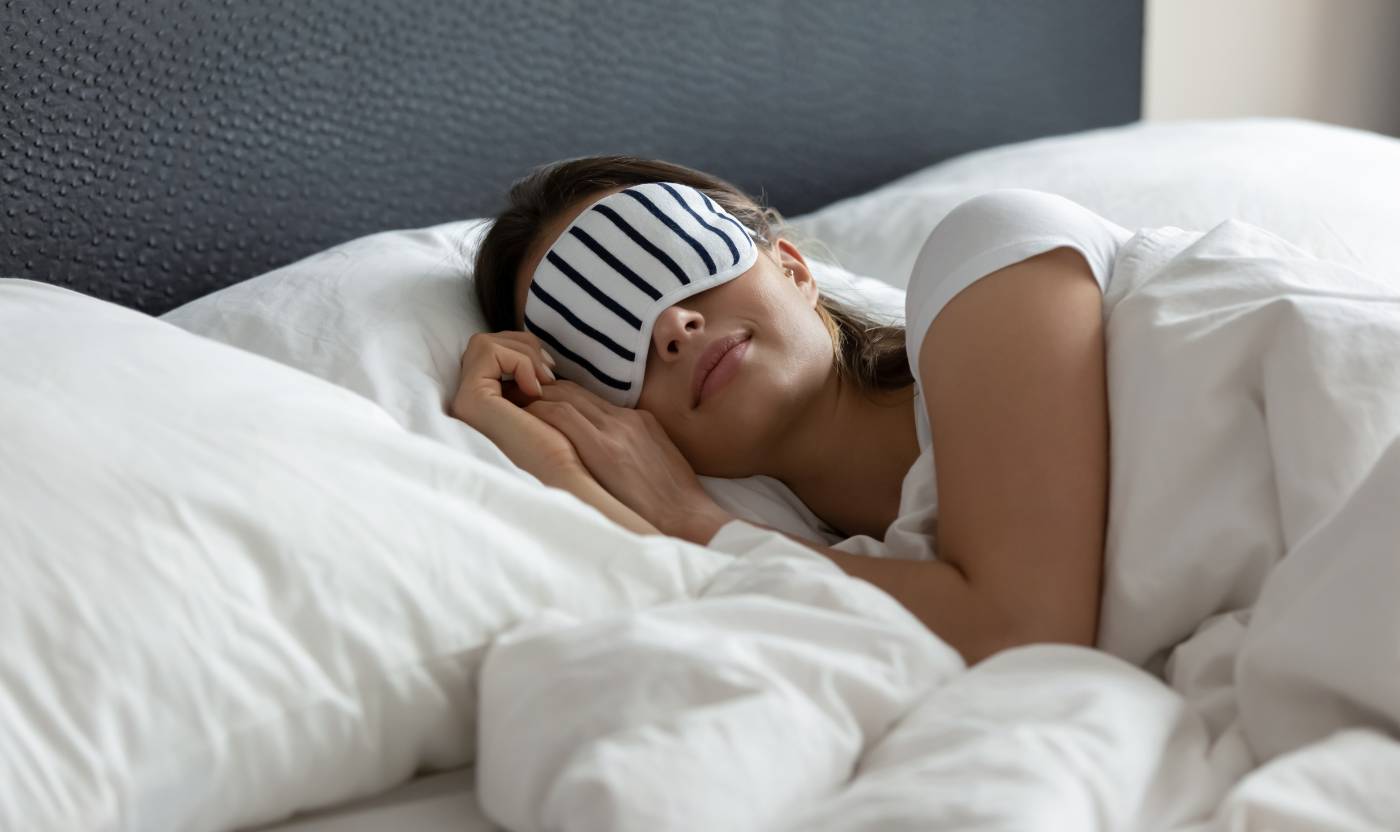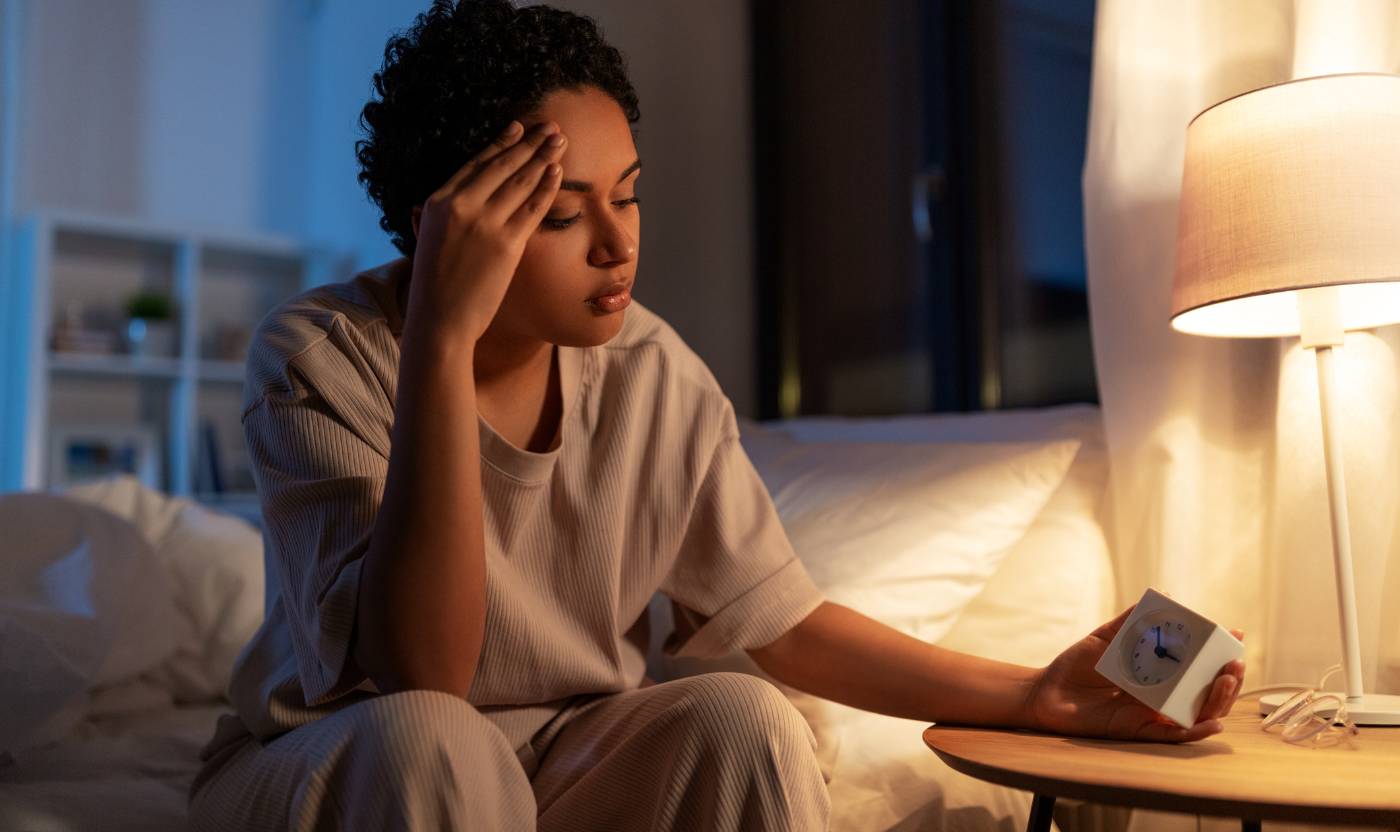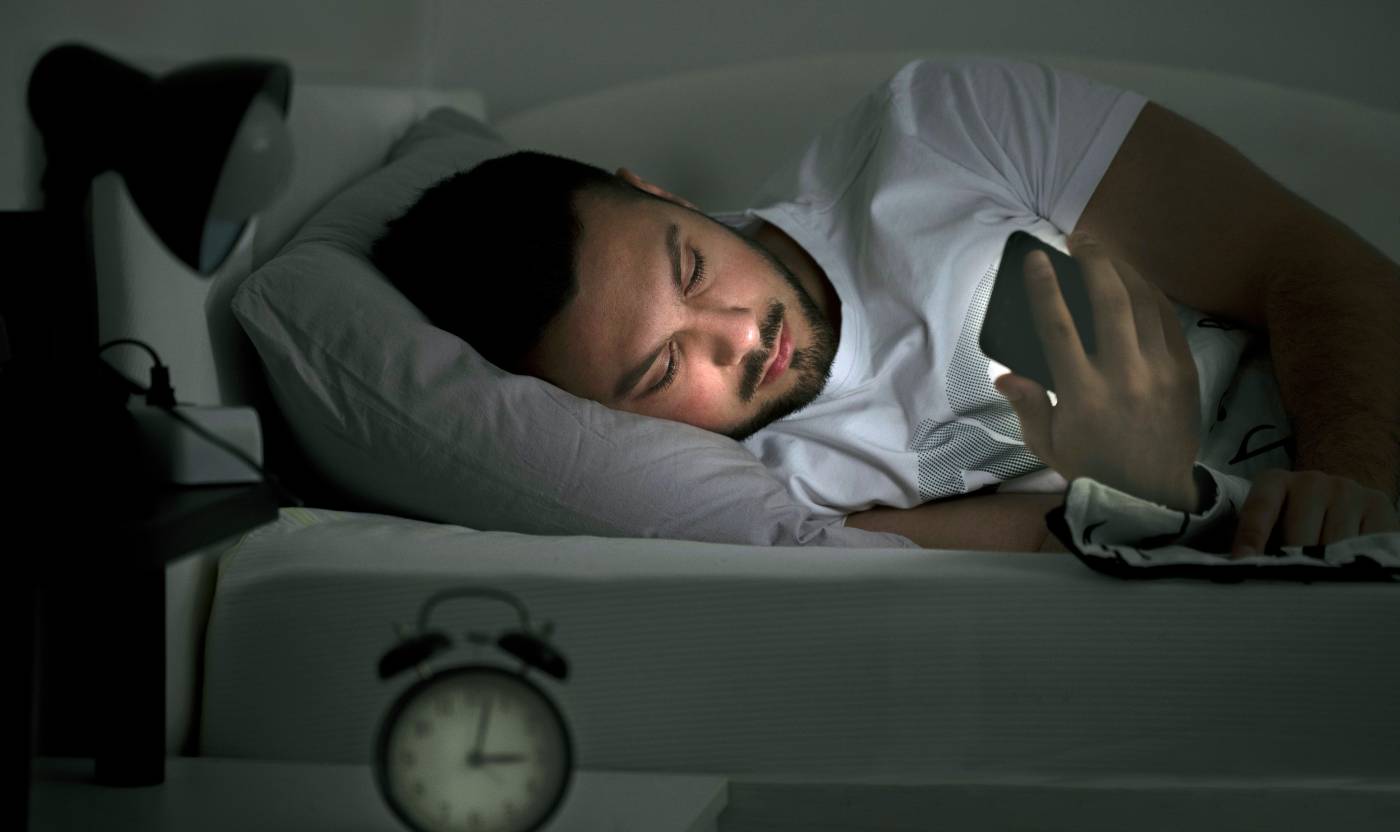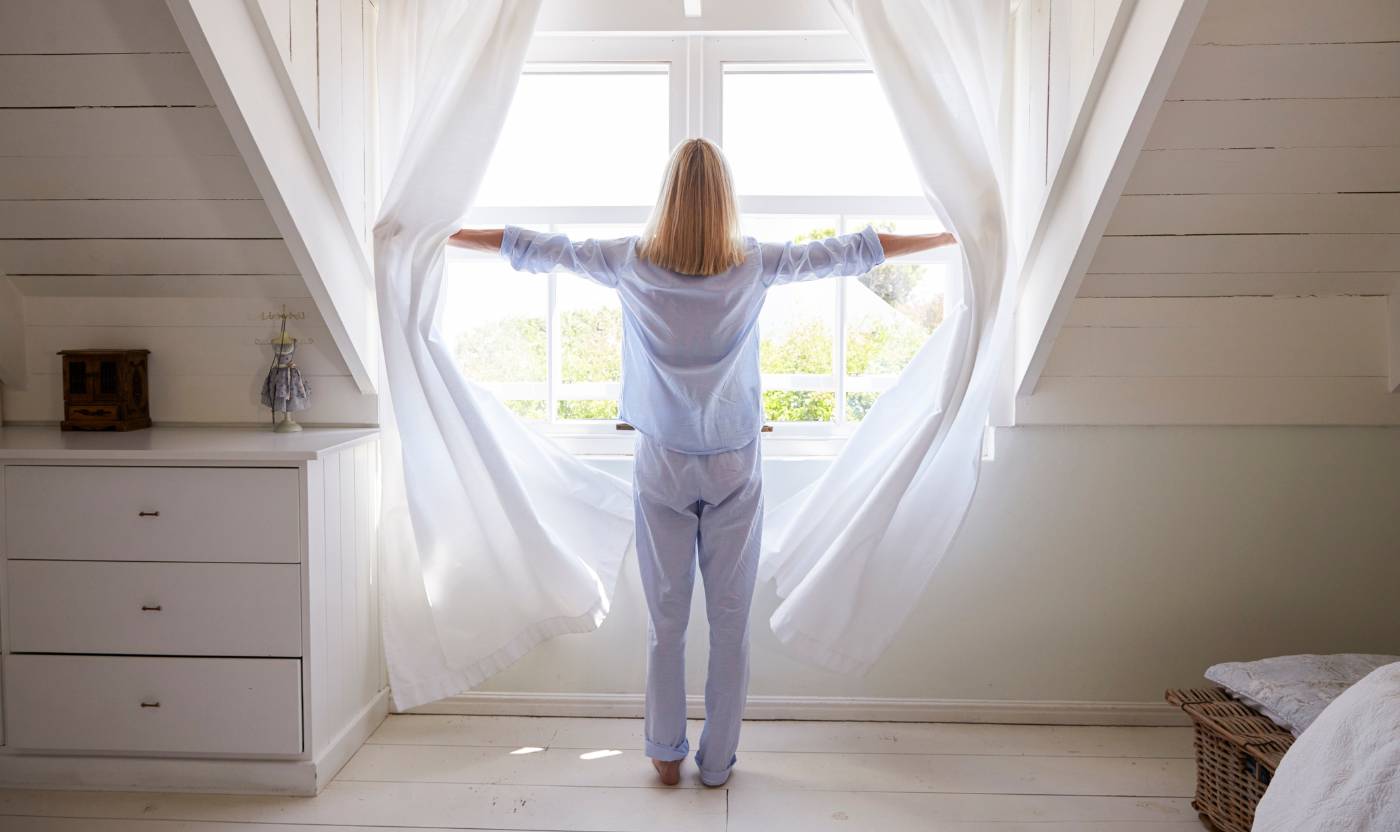
It’s hard to know what to do when you can’t sleep. Worrying about falling asleep can leave us feeling even more awake, and counting sheep doesn’t always do the trick.
We spoke to Bridget, one of our psychologists at My Mirror, who gave us her advice for when you can’t sleep. She revealed that “one of the main reasons we struggle to sleep is when our minds are too busy”. There’s a strong link between a peaceful mind and a great night’s sleep, and working towards a healthier mind can turn our sleep troubles around.
In this guide, we’ll reveal what to do when you can’t sleep and share some top psychologist tips so you can wake up feeling refreshed.
Why can’t I sleep at night?

Before diving into what you can do to help, it's essential to grasp the common reasons why you can’t sleep. Even when you’re tired, sleeping soundly through the night doesn’t come easily for many people. Researchers have even estimated that 39.8% of Australians suffer from inadequate sleep1, which can affect our physical health in the long term and negatively impact our mental well-being.
So why do we struggle to sleep at night?
Your bedroom isn’t set up right
If your bed is uncomfortable or your room is too noisy, it might be difficult to sleep through the night. Give your room the best set-up to optimise your sleep. To improve your sleep space, you could: invest in some ear plugs or an eye mask; use the right bedding so you’re the right temperature; only use your bedroom for sleep (e.g. no working or eating on your bed).
You have unfriendly sleep habits
Our daily habits also impact our sleep. Whether you’re doom scrolling on your phone right before bed, or drinking too much caffeine in the evenings, the things we do in the day can influence how well we sleep. Think about the nights you don’t sleep very well and work out if there’s anything you’ve done during the day that could be impacting your sleep.
Your mind is too busy
A busy mind is a major culprit to poor sleep. Racing thoughts, anxiety, and stress can all keep your brain active when it should be winding down for the night. While our unconscious thoughts don’t seem like they’re in our control, there’s lots we can do to calm our minds down and let our brains know it’s time for bed.
Now we’ve covered some of the reasons why we can’t sleep at night, it’s time to explore what we can do to help. Read on to discover some of Bridget’s top psychologist techniques to try when you can’t sleep at night:
1. Try mindfulness techniques

Mindful meditation is a great method to try when you can’t sleep. Mindfulness involves focusing your attention on the present moment, acknowledging your thoughts and emotions without judgment. By incorporating mindfulness practices into your daily routine, you can train your mind to be more present and reduce the intrusive thoughts that keep you up at night.
Bridget shared why mindful techniques are great to try when you can’t sleep: “Breathwork is a great way to calm our mind. Counting our breaths adds to our cognitive load, giving us something to focus on other than our thoughts”.
Online resources and guided meditation apps are great tools to learn how to practice mindfulness. Some ways you can become more mindful include:
- Taking controlled breaths in and out.
- Bringing your focus onto your breathing, or focusing on a single point or object.
- Keep your mind on that point.
- Notice when your mind wanders and bring your attention back to your point of focus without judgement.
Mindfulness meditation has been clinically proven to benefit us, reducing stress, anxiety, sleep difficulties and depression.
2. Put your thoughts onto paper

Sometimes, worries and concerns can seem magnified at night when there aren’t as many daytime distractions. An interesting technique to fix this is to write down your thoughts and feelings in a journal or ‘worry book’ before bedtime.
Bridget recommends using a worry book when your thoughts or worries are preventing you from sleeping. “A worry book can be great because it transfers your worries from your mind onto paper, so you can stop thinking about them knowing you can come back to them tomorrow.”
Journaling can be a therapeutic process, giving us insights into our emotions and thought patterns. If you are able to identify recurring worries, stresses or triggers that affect your sleep you may be able to manage them better.
3. Embrace your sleep hygiene

Creating a sleep-conducive space is essential for a good night’s sleep. Sleep hygiene refers to daily habits and routines that promote sound sleep. The better your sleep hygiene, the better your sleep will be.
As we touched on earlier, sleep hygiene includes the conditions in your bedroom, as well as your daily routine. Simple changes could make a big difference to the way you sleep at night. Here are some simple habits to try when you can’t sleep at night:
- Get into a routine. Go to sleep and wake up at the same time every day to let your body’s internal clock (circadian rhythm) get into a healthy cycle.
- Unwind before bedtime. Get into a familiar habit like brushing your teeth, changing into pyjamas, and then reading for 20 minutes before sleep – maintaining the same sequence every night.
- Limiting daytime naps. If necessary, opt for brief naps to ensure you remain sleepy during the night.
- Don’t drink too much caffeine in the afternoons or evenings. This can disrupt your sleep by blocking the signals from your brain when you are feeling tired.
4. Get your daily dose of vitamin D

Even after a less-than-ideal rest, resist the urge to oversleep. Waking up in the morning and being exposed to sunlight will boost our vitamin D levels. This has a range of health benefits, including better focus, feeling more awake, and getting our body into a healthy sleep cycle.
“Exposure to natural light in the morning boosts our Vitamin D levels, helps us focus better and improves our circadian rhythms”.
By the same token, it’s important to limit your exposure to light at night time so your brain knows it really is time for bed. The brain produces a substance called melatonin around 2 hours before you go to sleep, which is what makes you feel sleepy.
Blue light from screens has been proven to disrupt this natural production, tricking our brains into thinking that it’s still daytime. When you can’t sleep at night, “avoid bright lights 1-2 hours before bed. This includes blue light from a screen which interrupts our natural melatonin production”.
5. Put your worries to rest in therapy

Sometimes, our sleep challenges run deeper than simply adjusting our bedtime routine. If insomnia, stress, anxiety, or severe sleep deprivation is impacting you, seeking guidance from a professional could be the best solution when you can’t sleep.
In some cases, disturbed sleep might be a manifestation of a more significant problem. Depression could be impacting your ability to rest, and sometimes being alone with your thoughts at night only amplifies unhelpful anxieties and emotions.
Bridget emphasises that therapy not only tackles sleep issues, but also delves into each client's history to get to the bottom of their sleep difficulties. "Getting to the root cause of a presenting difficulty is really important. As a psychologist, you need to take a holistic picture of somebody’s life so you can understand the underlying factors contributing to poor sleep.”
Get started with online therapy

Looking to find a psychologist to assist you with your sleep concerns? Online therapy at My Mirror makes starting therapy easy, with zero wait times and a matching tool that pairs you with the best psychologist for your needs.
Working with a qualified psychologist can help you uncover the root causes of your sleep difficulties and develop personalised strategies to improve your sleep routine. Get started with online therapy today and discover convenient, flexible support from the comfort of your own home.
Whatever the right solution may be for your sleep difficulties, knowing what tools to use when you can’t sleep can make a world of difference.
If you think that therapy might be beneficial, take the next step and regain control of your well-being with an online psychologist at My Mirror.
References:
https://www.sleepfoundation.org/sleep-hygiene
https://www.hopkinsmedicine.org/health/wellness-and-prevention/melatonin-for-sleep-does-it-work
https://www.nhlbi.nih.gov/health/sleep-deprivation
https://www.nccih.nih.gov/health/melatonin-what-you-need-to-know
https://www.sleepfoundation.org/meditation-for-sleep
https://www.nccih.nih.gov/health/meditation-and-mindfulness-what-you-need-to-know
